Introduction
As parents, we are constantly searching for the best educational approaches and methods to ensure our children's development and success. One method that has gained significant popularity over the years is the Montessori Method. Developed by Dr. Maria Montessori, an Italian physician and educator, this approach focuses on allowing children the freedom to learn and explore at their own pace. In this article, we will provide an in-depth explanation of the Montessori Method and explore its key principles and benefits for your child's development. We will also discuss how you can implement Montessori principles at home.
Understanding the Montessori Philosophy
The Montessori Method is rooted in the belief that every child is a unique individual with a natural curiosity and a desire to learn. Dr. Montessori believed that children learn best through hands-on experiences and independent exploration. She emphasized the importance of creating an environment that is conducive to learning, where children can freely choose activities that interest them.
Key principles of the Montessori Method include:
Respect for the Child: The Montessori philosophy recognizes that children have their own abilities and potential. It values and respects their independence, choices, and individual learning styles.
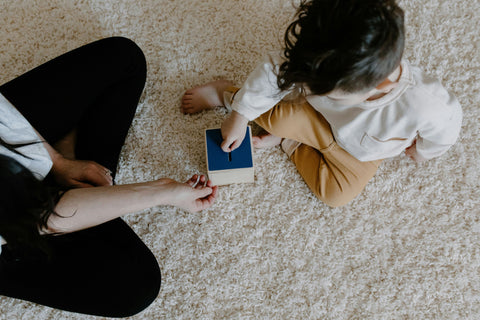
Prepared Environment: Montessori classrooms or learning spaces are carefully designed to foster independence, order, and a sense of calm. They are equipped with age-appropriate materials and resources that promote self-directed learning and exploration.
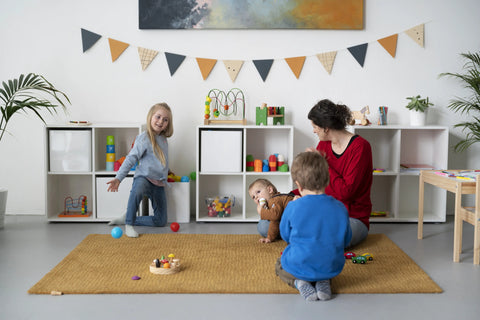
Individualized Learning: The Montessori Method tailors education to each child's unique needs and interests. It promotes self-paced learning, allowing children to progress at their own speed and delve deeper into subjects that capture their attention.
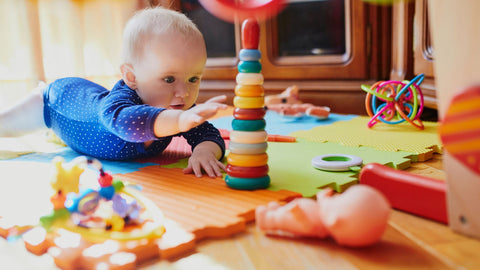
Mixed-Age Groupings: Montessori classrooms typically include a mix of ages, ranging from three to six years or six to nine years. This creates a collaborative environment where older children can mentor and inspire younger ones, fostering social interaction and empathy.
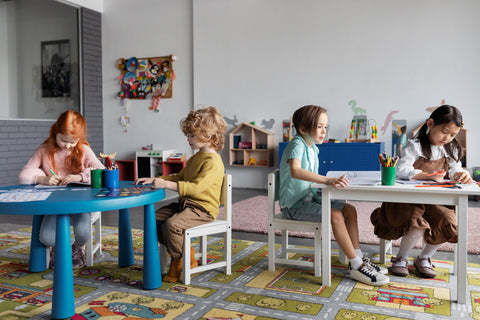
Freedom with Limits: While the Montessori Method emphasizes freedom and independence, it also sets clear boundaries and limits. Children are encouraged to make choices within the boundaries set by the prepared environment.
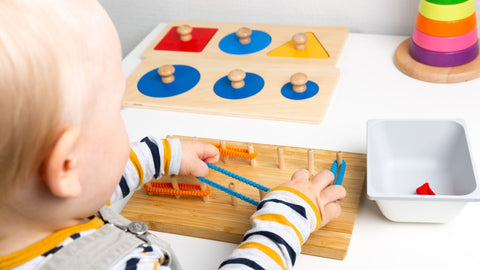
Benefits of the Montessori Approach
The Montessori Method offers numerous benefits for children's holistic development. Here are some key advantages:
Promotes Independence: By allowing children to choose their own work and engage in self-directed learning, the Montessori Method fosters independence and empowers children to take ownership of their education.
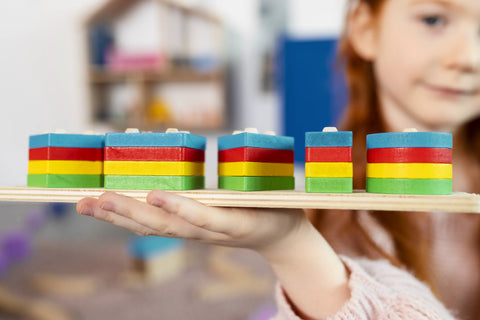
Enhances Concentration: The method encourages children to engage in uninterrupted work periods, which promotes deep concentration and focus. This ability to concentrate for extended periods can have significant benefits in other areas of life as well.
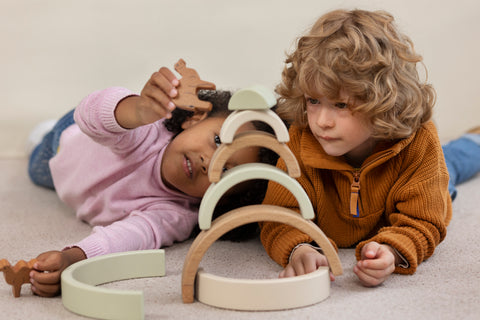
Develops Practical Life Skills: Practical life activities are an essential component of the Montessori curriculum. Through activities such as pouring, tying shoelaces, or buttoning, children develop fine motor skills, concentration, and independence in daily tasks.
Nurtures Social and Emotional Development: Montessori classrooms emphasize cooperation, respect, and empathy among children. The mixed-age groupings allow for social interactions, fostering a sense of community and enabling children to develop meaningful relationships.
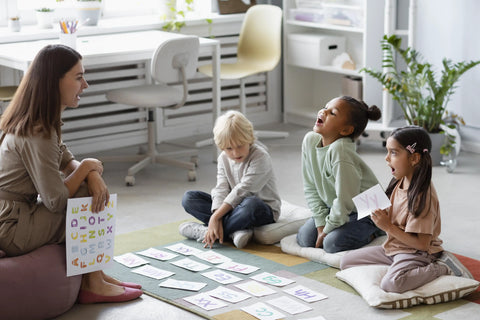
Cultivates a Love for Learning: The Montessori Method ignites and sustains a love for learning in children. By allowing them to pursue their interests and passions, it creates a joyous and engaging learning environment.

Implementing Montessori Principles at Home
While the Montessori Method is commonly associated with schools or classrooms, its principles can also be applied at home to create a nurturing and educational environment for your child. Here are some ways to implement Montessori principles at home:
Follow Your Child's Interests: Pay attention to your child's interests and provide them with opportunities to explore those subjects further. Offer age-appropriate materials and resources that align with their interests.
Create an Orderly Environment: Designate specific areas for different types of activities, such as a reading nook, an art corner, or a space for practical life activities. Keep the environment organized, with materials easily accessible for your child.
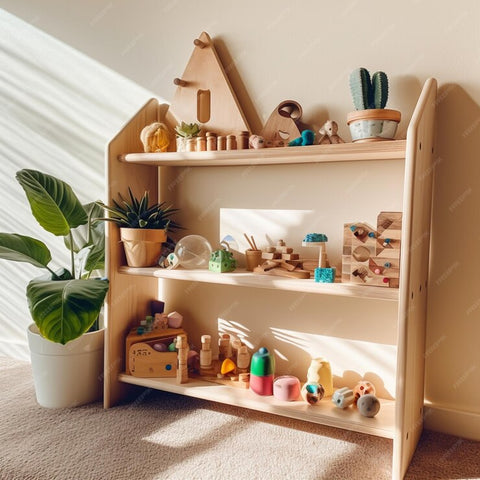
Encourage Independence: Provide opportunities for your child to practice independent tasks, such as self-care activities or household chores. Offer child-sized tools and encourage them to take responsibility for their belongings.
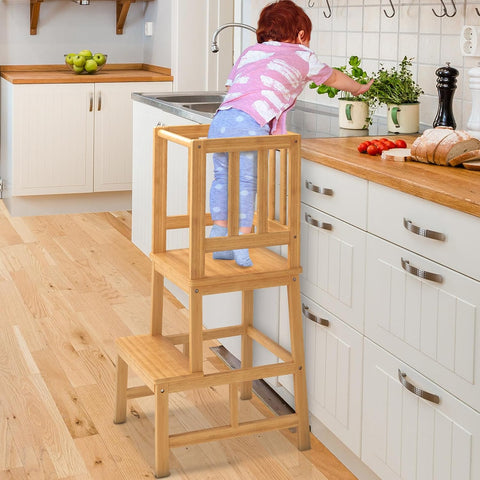
Promote Self-Directed Learning: Offer a variety of educational materials and toys that encourage exploration, problem-solving, and creativity. Allow your child to choose their own activities and give them the freedom to work on tasks at their own pace.
Foster Collaboration: Arrange playdates or social gatherings with children of different ages. Encourage your child to interact and collaborate with others, fostering important social skills and empathy.
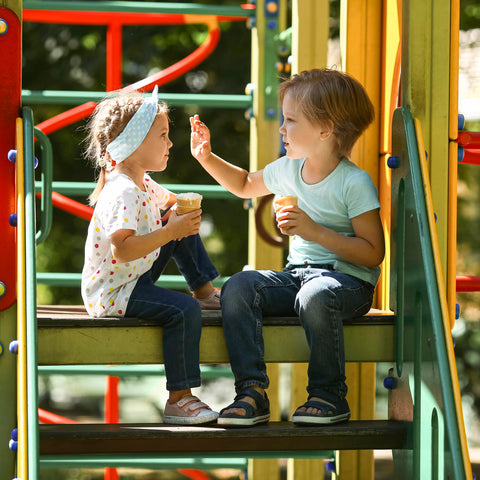
Remember, the Montessori Method is not about replicating a classroom environment at home. It is about embracing the core principles and adapting them to suit your child's individual needs and your home environment.
In conclusion, the Montessori Method is a child-centered approach that values independence, hands-on learning, and individualized education. By understanding and implementing its principles, you can create a nurturing and engaging environment that promotes your child's holistic development. Whether you choose to enrol your child in a Montessori school or apply the principles at home, the Montessori Method offers a unique and effective approach to education.






Leave a comment